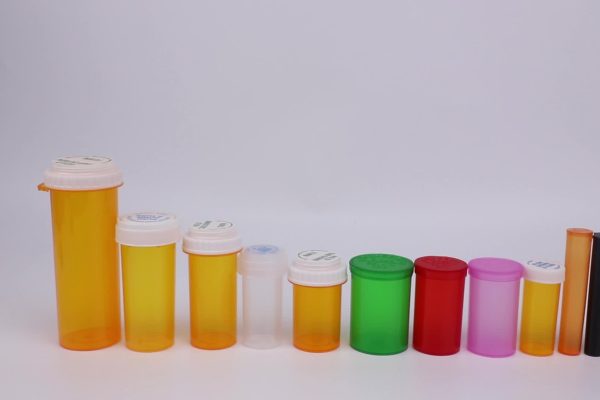Introduction: Chasing Better Sleep Naturally
Struggling with sleepless nights? You’re not alone. In today’s stress-packed world, more and more people are turning away from prescription sleeping pills and looking for natural alternatives. That’s where the debate around Kratom vs Kava comes in—two herbal remedies that promise to calm the mind, relax the body, and help you finally get some quality rest. But when it comes to hitting the pillow peacefully, which one really delivers the better night’s sleep?
Let’s break it down.
What Exactly Is Kava?
Traditional Roots
Kava, or Piper methysticum, is a plant native to the Pacific Islands. For centuries, it’s been used in cultural rituals to promote relaxation and social bonding.
How It Works
Kava contains kavalactones, which interact with the brain’s GABA receptors—the same calming mechanism targeted by anti-anxiety meds. These compounds help reduce anxiety, quiet the mind, and ease you into sleep.
What Is Kratom?
Southeast Asian Origins
Kratom (Mitragyna speciosa) comes from the lush rainforests of Thailand and Indonesia. It’s been traditionally used by laborers to fight fatigue and manage pain.
Dual-Action Effects
Unlike Kava, Kratom’s effects depend heavily on dosage. Lower doses act as a stimulant. Higher doses bring on sedative, calming effects, often helping with pain-induced insomnia.
How Kava Helps with Sleep
Kava is widely known as a natural sedative. It’s not just about drowsiness—it promotes mental calm, eases physical tension, and lowers stress hormones, making it easier to drift into deep sleep.
You know that warm fuzzy feeling before you fall asleep? Kava brings that in liquid form.
Can Kratom Really Improve Sleep?
Kratom can help, especially if your sleep issues are tied to chronic pain or anxiety. In moderate doses (typically 3–5 grams), Kratom produces a heavy, body-sinking effect that many users describe as “blanket-like comfort.”
However, misuse can quickly lead to tolerance, dependence, and even withdrawal—something to keep in mind.
Kratom vs Kava: The Core Differences
Brain Chemistry
Kava enhances GABA (your brain’s chill-out chemical).
Kratom binds to opioid receptors (like painkillers but milder).
Plant Intent
Kava is designed for calm, traditionally used for sleep and anxiety.
Kratom is adaptogenic, meaning it shifts based on how much you take.
Onset Time and Duration
Kava: Fast-acting—relaxation kicks in within 20–30 minutes and lasts 4–6 hours.
Kratom: Effects appear in 30–45 minutes and can linger for 5–7 hours, depending on dose and strain.
Scientific Backing
Kava: Backed by clinical studies, especially for anxiety-related insomnia. It’s been shown to shorten the time it takes to fall asleep.
Kratom: Lacks robust research. Most evidence is anecdotal or drawn from pain management contexts.
Dosage Guidelines
Kava for Sleep
Start with 150–250 mg of kavalactones.
Best taken 30–60 minutes before bed.
Kratom for Sleep
Sedative doses range between 4 to 6 grams.
Avoid daily use to prevent dependency.
Potential Side Effects
Kava:
Rare liver toxicity (mostly from long-term, high-dose use)
Drowsiness, nausea (in high amounts)
Kratom:
Constipation, tolerance, addiction potential
Withdrawal symptoms (if misused)
Legal Concerns
Kava is legal in most countries and sold in health shops or online. Kratom, however, has a mixed legal status—it’s banned or regulated in several countries and U.S. states due to safety concerns.
What Real Users Say
“Kava helps me unwind. I feel relaxed without losing control. It’s part of my nightly tea ritual.”
– Maya, 34
“Kratom helps when pain keeps me up. But I try not to use it every night—it can sneak up on you.”
– Jesse, 41
Verdict: Kava or Kratom for Sleep?
If sleep is your only goal, Kava is the safer and more targeted option. It’s been used for generations specifically for calming the mind and relaxing the body.
Kratom, on the other hand, is more of a wildcard. It can work, particularly if pain or anxiety are your main issues, but the risk of tolerance and dependency makes it less ideal for long-term sleep use.
Other Natural Alternatives for Sleep
Valerian Root – Often used alongside Kava
Magnesium – Helps with muscle relaxation
Melatonin – Regulates your sleep-wake cycle
L-Theanine – Calms without drowsiness
CBD Oil – Non-intoxicating and soothing
Final Thoughts
When comparing Kratom vs Kava for sleep, the key is understanding your unique needs.
Want gentle, reliable calm? → Go with Kava.
Dealing with pain-induced insomnia? → Kratom might help—but handle with care.
Nature offers both tools—it’s how you use them that makes all the difference.
Explore premium kratom strains you can trust—only at Christophers Organic Botanicals, where quality meets tradition.
FAQs
- Is it safe to use Kava or Kratom every night?
Kava is safer for occasional use. Long-term daily use may carry liver risks. Kratom should be used sparingly to avoid dependency.
- Can I mix Kava and Kratom for better sleep?
No, it’s not recommended. Mixing two sedatives can be risky and lead to unwanted side effects like excessive sedation or nausea.
- Which one is better for anxiety-related insomnia?
Kava is often the preferred choice due to its direct action on GABA, which helps reduce anxiety without major side effects.
- Will I feel groggy in the morning after taking Kava or Kratom?
Kava typically causes no “hangover.” Kratom might leave you feeling sluggish if taken in high doses.
- Where can I buy quality Kava or Kratom?
Look for reputable online vendors with third-party testing. Avoid suspicious or unverified sources to ensure purity and safety.





